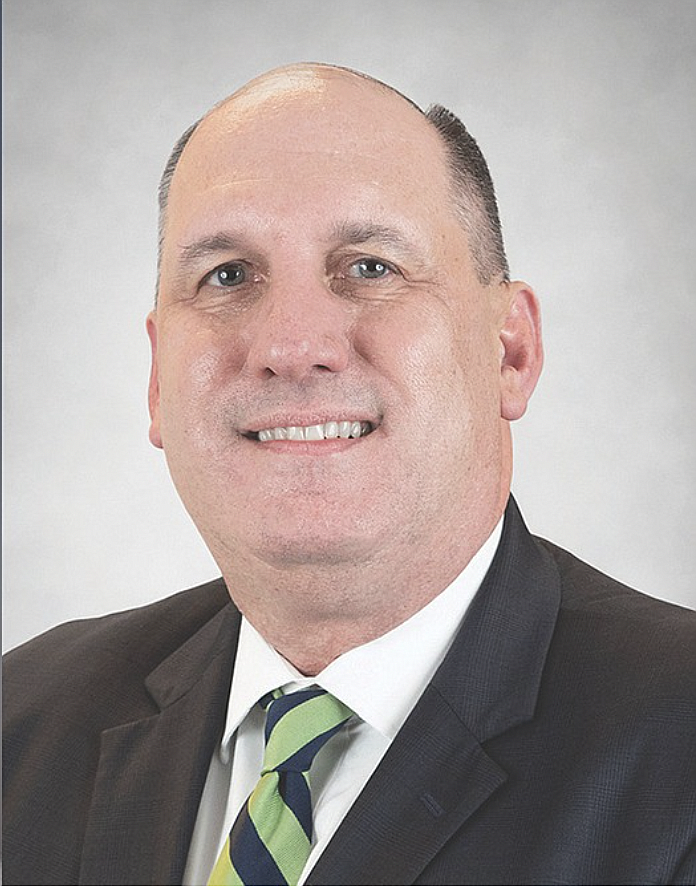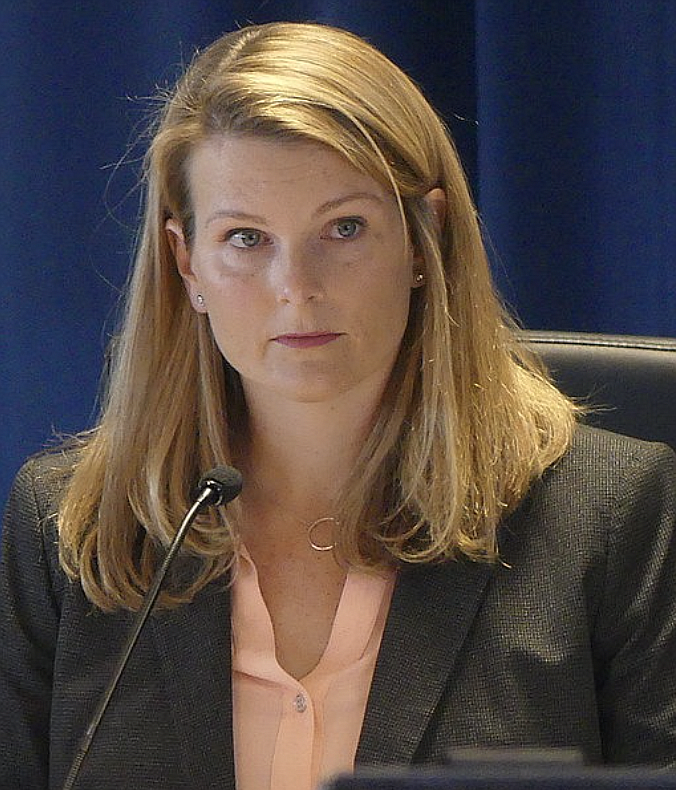
A top financial officer at JEA said Ryan Wannemacher, the utility’s former chief financial officer, ordered him not to discuss potential payouts of a bonus plan that was developed in 2019 under Wannemacher and former JEA CEO Aaron Zahn.
Joe Orfano, who was JEA’s treasurer in 2019, testified March 1 in the federal criminal trial of Zahn and Wannemacher that he approached Wannemacher one-on-one during July 2019 to discuss what was known as the performance unit plan, or PUP.
The plan, which is central to the government’s case, involved creating performance units that were similar to stocks in private companies. Those units would be offered to JEA employees at $10 apiece, and their value was designed to rise or fall with the company’s financial performance.
The stated purpose for the PUP was to incentivize JEA workers to perform well in their jobs and boost the utility’s fortunes.
Prosecutors claim a sale of JEA would have triggered PUP bonuses in the tens of millions of dollars for Wannemacher and Zahn, who were indicted on conspiracy and wire fraud charges under allegations that they hid the magnitude of the payouts from the JEA board and misled board members into believing that JEA needed to be sold to avoid financial ruin.
Linking bonuses and sale ‘untoward’
Orfano said that in the summer of 2019, he had come to realize that a sale of JEA would generate bonuses for plan participants. He said he felt that linking the bonuses and a sale were “untoward.”

He testified that he brought his concerns to Zahn, who didn’t respond.
He said he approached Wannemacher with his concerns outside of a parking garage near JEA’s former headquarters at Church and Laura streets.
“I said I knew there was going be value (from a sale), and Mr. Wannemacher told me that at Mr. Zahn’s direction we were not to discuss the potential value of the PUPs with anyone,” he said.
Orfano testified that in another conversation with Wannemacher about the plan, Wannemacher indicated the executives believed they were entitled to bonuses.
“Mr. Wannemacher said to me if the City Council and the mayor’s administration don’t approve the PUPs, then we’re all out of here, because we’ve created this value,” Orfano testified. “And by we, he meant the senior leadership team.”
Orfano is now JEA’s vice president of financial services.
Conflicting financial scenarios
Orfano also testified that in 2018 and 2019, Zahn and Wannemacher made presentations to credit ratings agencies that described JEA as thriving financially.
As Orfano testified, jurors saw slides of one presentation containing such text as “JEA is a Superior Electric Utility” and “The financial metrics reflect a thriving utility today & long into the future. “
Those statements conflicted with planning scenarios given to JEA board members in mid-2019, which included suggestions such as mass layoffs, a 26% rate increase and discontinuation of JEA’s financial contributions to the city budget to stave off potentially catastrophic disruptions in the form of expanded use of rooftop solar panels and growing efficiency of homes, businesses and appliances.
Former COO aware of potential payouts
In other testimony, former Chief Operating Officer Melissa Dykes said she would have taken PUP payouts if the plan had been implemented.

That didn’t happen. After the City Council Auditor issued a report in November 2019 sounding an alarm on the potential payouts, the JEA board rescinded the plan and halted the sale process in December 2019.
Zahn and Wannemacher were fired in early 2020.
Dykes testified that she and other executives were aware that the plan would provide lucrative payouts to JEA’s leadership through a sale. She said she assumed Zahn had fully explained the plan to board members, including the magnitude of the bonuses, before they OK’d it.
She testified that if the plan had cleared a legal review and had been fully implemented, she would have purchased PUPs and taken the payments.
In questioning by Assistant U.S. Attorney Tysen Duva that was at times pointed, Dykes said she had been told there was no opt-out mechanism for the bonuses. Referring to a conversation between Duva and Dykes in February 2020, Dykes recalled stating at the time that the PUPs could be worth millions.
“And you would have taken it?” Duva said.
“I didn’t think it was ever going to happen,” Dykes said.
“But you were going to take it?” Duva said.
“What other option was there?” she said.
“Isn’t the easy option to say no?” Duva said.
Duva further pressed Dykes on why she didn’t notify board members that she disagreed with financial projections on which they based the decision to potentially sell the utility.
Other testimony from Dykes focused on “circuit breakers” that were placed into the implementation process for the performance unit plan to ensure it was legal.
Defense attorneys have portrayed those measures as evidence that Zahn and Wannemacher acted aboveboard in developing the plan.
Dykes offered a different explanation.
She testified that JEA’s former chief administrator, Herschel Vinyard, put the circuit breakers in place in an attempt to scuttle the plan. The measures included a review by the state attorney general’s office and the state ethics commission.
Dykes testified that Vinyard was firmly opposed to allowing proceeds from a sale to go toward bonuses, and once said that if Jacksonville residents found out any money was going to executive payouts they would “light themselves on fire.”
“I think he designed the process of going to the attorney general’s office and the ethics commission to essentially kill the plan,” she said, suggesting that state officials would likely have quashed the plan.
The trial is being held in the Bryan Simpson U.S. Courthouse with Senior U.S. District Judge Brian Davis presiding. Testimony is scheduled to resume at 11 a.m. March 4.